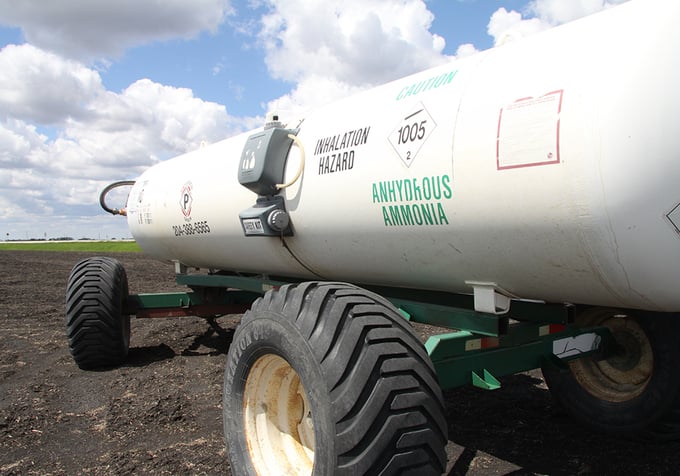May 21, 2025 | 04:45 GMT +7
May 21, 2025 | 04:45 GMT +7
Hotline: 0913.378.918
May 21, 2025 | 04:45 GMT +7
Hotline: 0913.378.918

Farmers around the world will be lowering their application rates of nitrogen fertilizer due to stratospheric prices of the vital crop input. "The world's food supply cannot be maintained without nitrogen," said Svein Tore Holsether, president of Yara International. Photo: WP
The head of the world’s leading fertilizer company is worried that food production will falter as nitrogen fertilizer supplies tighten.
“We are deeply concerned about the state of global agriculture,” Svein Tore Holsether, president of Yara International, said during the company’s third quarter 2022 conference call.
Fertilizer supplies are being squeezed as manufacturers curtail production due to sky-high natural gas prices. That is happening amid what Holsether described as an “escalating food crisis.”
The U.S. Department of Agriculture’s Economic Research Service estimates there are 1.3 billion food-insecure people in 77 low- and middle-income countries in 2022, up 10 percent from last year due to COVID-19 and the war in Ukraine.
Farmers around the world will likely be lowering their application rates of nitrogen fertilizer due to high prices of the vital crop input.
“The world’s food supply cannot be maintained without nitrogen,” said Holsether.
Global grain yields would drop an estimated 43 percent in one year if there was no nitrogen applied to the soil, according to Yara. That is obviously not going to happen but there will be cutbacks on how much is applied due to tightening supplies.
Production is being sharply curtailed in the European Union, which supplies 15 percent of the world’s finished nitrogen fertilizer products. About half of the EU’s production capacity has been idled due to Russian restrictions on natural gas supplies to the region.
Spot gas prices in the EU were up 248 percent compared to the third quarter of 2021.
“Yara’s markets have never been more challenging than what we have seen in the past 12 months with European production costs reaching an all-time high,” said Holsether.
The cost of producing urea topped US$1,500 per tonne at times during the third quarter.
Yara operated at 57 percent of its production capacity in Europe in the third quarter, down from its more typical rate of 80 to 90 percent. The curtailments have taken 1.7 million tonnes of Yara’s ammonia and 900,000 tonnes of its finished fertilizer production capacity off the market.
As a result, the company’s fertilizer deliveries were down 26 percent compared to the third quarter of 2021, including a 35 percent drop in the Americas.
“In addition, there is also less supply available from China and several other locations as well,” said Holsether.
Fertilizer inventories are at historically low levels in Europe and there is a risk of nitrogen fertilizer shortages and price spikes this winter, especially if natural gas availability further deteriorates.
“The world needs all the fertilizer at its disposal,” he said.
However, he cautioned the EU against importing fertilizer from Russia to make up for the lost European production.
“In the long-term, it is critical for Europe to reduce our dependency on Russia, not only within energy, but also within fertilizer and food,” said Holsether.
Russia supplies 14 percent of the world’s urea, 21 percent of its potash, 23 percent of its ammonia and 46 percent of its ammonium nitrate.
Yara wants the EU to accelerate its use of renewable energy and to secure continued access to natural gas for the fertilizer sector from other suppliers, so that the industry is less reliant on Russian natural gas.
(Producer.com)

(VAN) Attempts to bring down the price of the Japanese staple have had little effect amid a cost-of-living crisis.

(VAN) Fourth most important food crop in peril as Latin America and Caribbean suffer from slow-onset climate disaster.

(VAN) Shifting market dynamics and the noise around new legislation has propelled Trouw Nutrition’s research around early life nutrition in poultry. Today, it continues to be a key area of research.

(VAN) India is concerned about its food security and the livelihoods of its farmers if more US food imports are allowed.

(VAN) FAO's Director-General emphasises the need to work together to transform agrifood systems.

(VAN) Europe is facing its worst outbreak of foot-and-mouth since the start of the century.

(VAN) The central authorities, in early April, released a 10-year plan for rural vitalization.